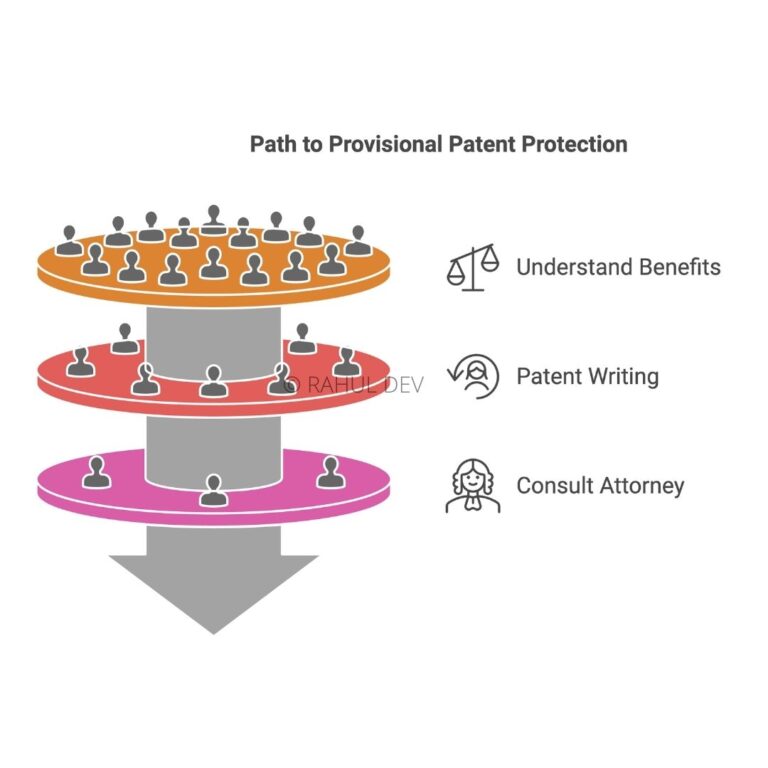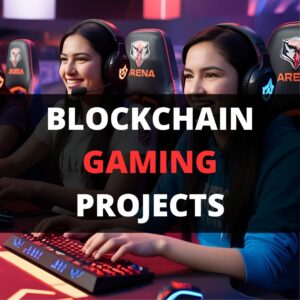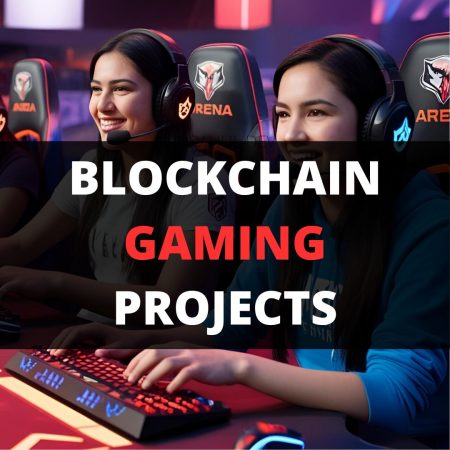Blockchain Gaming Projects
Insights by Dr. Rahul Dev

Understand Practical Aspects
Understand the process of launching gaming projects

Insights by Dr. Rahul Dev

Understand the process of launching gaming projects

Protect your innovations across multiple countries and create strong patent portfolio to boost business valuation
Local and global brand protection through international trademark registrations
Extensive research and business writing for technical whitepapers and B2B content products
Here I write an extensive guide to launch blockchain gaming platforms covering writing technical whitepapers for blockchain gaming projects and blockchain technology landscape in 2025. The blockchain gaming landscape offers tremendous opportunities for businesses ready to navigate its complex terrain. A successful blockchain gaming project launch requires mastering key elements from business models to legal frameworks. The intersection of blockchain and gaming has created a revolutionary space where true digital ownership meets interactive entertainment. By 2025, this sector has matured significantly, moving beyond speculative hype toward sustainable economic models and enhanced player experiences. The market has demonstrated remarkable growth, with blockchain gaming quadrupling its user base since 2023 to reach over 7 million daily active wallets.
This article provides a roadmap for launching a blockchain gaming platform in 2025, addressing each critical component from business model selection to legal documentation. By understanding these key elements and implementing them strategically, entrepreneurs can position themselves at the forefront of gaming’s next evolution, wherein players gain unprecedented ownership and developers unlock new revenue streams through decentralized technologies. The companies that successfully navigate this complex landscape will help define the future of interactive entertainment in a Web3 world
This article covers following topics:
Blockchain Gaming Business Model and Blockchain Gaming Tokenomics
Writing Technical Whitepaper for Blockchain Gaming Projects
Role of Digital Assets in Blockchain Gaming Projects
Blockchain Gaming Research Trends
Blockchain Gaming Technology Landscape
Blockchain Gaming Patent Landscape


The foundation of any blockchain gaming platform lies in its business model and tokenomics design. The market has evolved beyond early play-to-earn hype toward sustainable approaches that prioritize genuine engagement. Several viable models exist in the current ecosystem. The play-to-earn (P2E) model awards cryptocurrency or NFTs through gameplay achievements, creating financial incentives for players. However, this requires careful economic design to prevent token inflation. The free-to-play with NFT monetization approach allows free access while generating revenue through optional in-game asset sales as NFTs. This lowers entry barriers while avoiding “pay-to-win” dynamics that could alienate players.
Also, many successful blockchain gaming platforms incorporate in-game asset trading marketplaces, taking transaction fees from player-to-player trades. Some utilize token sales to raise capital and build communities before launch, while others implement staking and yield models that encourage long-term participation by allowing players to lock up tokens for rewards. For tokenomics, a well-designed economy must balance token “faucets” (sources) and “sinks” (removal mechanisms). Many games implement a dual-token system, including one utility token for in-game currency and one governance token for participation rights. This approach manages inflation while maintaining value. Fixed-supply tokens with deflationary pressure often prove most successful for long-term stability. The User incentives should align with healthy gameplay through mechanisms like gameplay rewards, staking yields, and referral bonuses as all incentive systems require thorough testing and modelling to ensure sustainability of blockchain gaming platforms.
A professional technical whitepaper serves as the blockchain gaming project’s foundation, demonstrating credibility to investors, partners, and the gaming community. By 2025, whitepapers must be comprehensive, clear, and data-driven. The document should begin with an executive summary that concisely presents your game concept, value proposition, and high-level information about your token and business model. Follow with sections on market background, providing context about the gaming industry and blockchain’s role, supported by relevant statistics.
The details your game concept and mechanics, explaining the genre, core gameplay loop, and player experience. The technical architecture section should outline your blockchain framework choice, smart contract system, scalability approach, and game engine integration. The blockchain gaming tokenomics section requires exceptional clarity, specifying total token supply, distribution plan, vesting schedules, and token utility. Include NFT and asset integration details, explaining what digital assets exist in your game and how they’re implemented as tokens. The goal is to present a realistic blockchain gaming launch roadmap with past achievements and future targets to demonstrate your phased plan. Introduce your team and partnerships, highlighting relevant experience in game development or blockchain. Finally, acknowledge legal and risk factors, discussing potential challenges and mitigation strategies. Throughout the document, maintain an informative, factual tone, avoid marketing buzzwords, and include professional diagrams and visuals to aid understanding.
Digital assets form the cornerstone of blockchain gaming platforms, allowing players to truly own in-game items through non-fungible tokens (NFTs) and utilize fungible tokens as currency. When integrating NFTs, determine which assets will become tokens. Popular choices include characters, skins, equipment, and virtual land. Utilize standard token protocols like ERC-721 for unique items and ERC-1155 for semi-fungible tokens to maximize compatibility with wallets and marketplaces.
Develop a clear minting and management strategy, whether pre-minting a series to sell or having the game trigger minting as players achieve milestones. Smart contracts should manage ownership transfers and potentially enforce royalty fees from resales. For in-game tokens, build game logic to award tokens for specific actions while enabling spending mechanisms for purchases or tournament entries.
Consider implementing interoperability features to allow assets to be used across multiple games or platforms. This might involve cross-game use partnerships, cross-chain portability through protocols like LayerZero, or adopting standardized asset formats. The technical integration requires your game client to communicate with the blockchain through APIs, triggering transactions when players acquire or lose assets. Many platforms maintain an off-chain mirror of inventory for speed, periodically syncing with the blockchain.
The blockchain gaming ecosystem experiences rapid evolution, with several trends shaping its development. User growth has accelerated dramatically, with blockchain gaming reaching 7.4 million daily unique active wallets in 2024, a 421% increase from 2023. Traditional gaming powerhouses have entered Web3, with Ubisoft launching multiple blockchain projects and Sony establishing a dedicated blockchain gaming division. Casual and social gaming on messaging platforms have gained traction, with Telegram games garnering hundreds of millions of plays.
The blockchain gaming technology landscape offers diverse options for blockchain infrastructure. Ethereum provides superior security but higher transaction costs, making it ideal as a settlement layer for high-value NFTs. Polygon offers high throughput and low fees while maintaining Ethereum compatibility, making it popular for many NFT projects. Purpose-built solutions like Immutable X provide gas-free transactions specifically for NFT trading, while high-performance chains like Solana handle thousands of transactions per second with minimal latency. Each platform offers unique advantages, from Flow’s user-friendly onboarding to Avalanche’s customizable subnets for dedicated game chains.
The blockchain gaming patent landscape reveals increasing intellectual property development in blockchain gaming. Sony has emerged as a particularly aggressive patent filer, securing patents for tracking in-game digital assets across platforms. Their “super-fungible tokens” concept combines fungible and non-fungible characteristics for game assets. Companies like Microsoft, Nintendo, Tencent, and NetEase have also filed numerous blockchain patents focusing on asset trading platforms and cross-platform ownership. For startups, performing freedom-to-operate searches helps avoid patent infringement while deciding whether to pursue patents for novel technical solutions involves weighing costs against long-term protection benefits.
Utility tokens serve as the functional currency within your blockchain gaming ecosystem, enabling transactions, purchases, and other essential game activities. Creating effective utility tokens requires careful planning and technical implementation. First, determine your token’s specific utility within the game. Will it serve as currency for purchases, a resource for upgrades, or fuel for special abilities? The token must have clear, valuable use cases that players readily understand and desire.
Choose the appropriate token standard based on your blockchain platform. For Ethereum and compatible chains, ERC-20 remains the standard for fungible tokens. Other platforms like Solana, Flow, or Binance Smart Chain have their own token standards with different features and optimization possibilities. Implement essential token functions in your smart contract, including minting, transferring, burning, and potentially staking mechanisms. Consider supply management carefully – will your token have a fixed supply, an inflationary model with continuous minting, or a deflationary approach with burning mechanisms? Each approach significantly impacts your economy’s long-term health.
The security represents a critical concern for token creation. Have your token contract audited by reputable firms before deployment to prevent exploits. Implement access controls to prevent unauthorized minting and consider timelock mechanisms for major parameter changes. For maximum transparency, document the token mechanics of blockchain gaming platform thoroughly in technical specifications and user guides. Players should understand how tokens are earned, spent, and potentially staked within your ecosystem.
A robust legal documentation forms the backbone of the blockchain gaming platform’s risk management strategy. The Terms of Use (ToU) establishes the contract between your platform and users, defining gameplay rules, ownership of digital assets, and license terms. Clarify that while players truly own their NFTs, the game environment remains under your control, and specify what happens to NFTs if your game shuts down. A comprehensive Privacy Policy details what data you collect (account information, wallet addresses, gameplay data) and how you use it. With blockchain’s transparency, clarify that transactions remain publicly visible on the ledger even if personal information remains protected.
For fundraising, Blockchain Gaming Investor Agreements like Simple Agreements for Future Tokens (SAFTs) outline token delivery terms and conditions. If conducting public token sales, comply with jurisdictional requirements, potentially excluding certain regions with restrictive regulations. Include clear Legal Disclaimers stating that your communications do not constitute financial advice, that tokens serve utility purposes rather than investment vehicles, and that earnings are not guaranteed. Acknowledge regulatory risks and the potential for asset loss through user error or external issues. For Global Compliance, navigate the complex regulatory landscape carefully. United States regulations involve multiple agencies: the SEC examines tokens under the Howey Test, the CFTC may consider tokens as commodities, and FinCEN focuses on money transmission concerns. The European Union’s MiCA framework requires crypto-asset whitepapers with specified disclosures for public token offerings.
Other jurisdictions present varying requirements. Singapore’s Payment Services Act requires licensing for certain token activities, while Dubai’s VARA issues authorizations for crypto operations. Japan maintains strict approval processes for exchange-listed tokens, and China bans cryptocurrency trading entirely. A strategic compliance approach includes geo-blocking high-risk jurisdictions, implementing KYC/AML processes at value thresholds, consulting legal experts in each major market, and continuously monitoring regulatory changes. By carefully addressing these six critical areas, entrepreneurs can position their blockchain gaming platforms for success in 2025’s competitive landscape. The intersection of gaming and blockchain continues to redefine digital ownership and entertainment, offering tremendous potential for well-prepared ventures within the blockchain gaming sector.

As a business coach and thought leader, I cannot emphasize enough the importance of innovation, new software patents, mobile apps, and patents for tech companies, startups, and entrepreneurs. The world is rapidly evolving, and staying ahead of the curve is vital for success. Embracing technological advancements such as blockchain and AI can unlock unprecedented opportunities, streamline operations, and propel businesses into the future with competitive valuation via intangible assets.
Click Here for AI Startup Valuation Guide.
For instance, blockchain technology can revolutionize supply chain management and secure data sharing wherein innovative business models are explained to the audience via technical whitepapers, while AI can automate and optimize decision-making processes. Mobile apps are no longer just a luxury; they have become essential tools for engaging customers and offering personalized experiences. Furthermore, securing digital innovation patents is crucial for protecting intellectual property, fostering innovation, and maintaining a competitive edge. By investing in these areas, businesses can position themselves as industry pioneers and pave the way for a prosperous future after thoroughly conducting the due diligence and reviewing the legal opinion letters, which in case of digital assets can assist in determining the tokens as utility assets or coins as utility tokens before listing the assets at an exchange.
Our team of advanced patent attorneys assists clients with patent searches, drafting patent applications, and patent (intellectual property) agreements, including licensing and non-disclosure agreements. Advocate Rahul Dev is a Patent Attorney & International Business Lawyer practicing Technology, Intellectual Property & Corporate Laws. He is reachable at rd (at) patentbusinesslawyer (dot) com & @rdpatentlawyer on Twitter.
Quoted in and contributed to 50+ national & international publications (Bloomberg, FirstPost, SwissInfo, Outlook Money, Yahoo News, Times of India, Economic Times, Business Standard, Quartz, Global Legal Post, International Bar Association, LawAsia, BioSpectrum Asia, Digital News Asia, e27, Leaders Speak, Entrepreneur India, VCCircle, AutoTech).
Regularly invited to speak at international & national platforms (conferences, TV channels, seminars, corporate trainings, government workshops) on technology, patents, business strategy, legal developments, leadership & management.
Working closely with patent attorneys along with international law firms with significant experience with lawyers in Asia Pacific providing services to clients in US and Europe. Flagship services include international patent and trademark filings, patent services in India and global patent consulting services.
Global Blockchain Lawyers (www.GlobalBlockchainLawyers.com) is a digital platform to discuss legal issues, latest technology and legal developments, and applicable laws in the dynamic field of Digital Currency, Blockchain, Bitcoin, Cryptocurrency and raising capital through the sale of tokens or coins (ICO or Initial Coin Offerings).
Blockchain ecosystem in India is evolving at a rapid pace and a proactive legal approach is required by blockchain lawyers in India to understand the complex nature of applicable laws and regulations.